Descobrir alguns dels nostres projectes
A continuació presentem una selecció d’alguns dels nostres projectes més destacats amb la nostra intervenció com a assessors externs.
Però la nostra experiencia no es limita tant sols a l’assessorament extern en projectes europeus. En determinades àrees i àmbits estratègics per a l’empresa, on el nostre equip pot proporcionar valor afegit més enllà del coneixement en gestió de projectes, B.Link participa directament com a soci beneficiari d’aquests. És el cas dels projectes Life REVERTER, TOURBAN, BeFuture, LookUp i SKATEBOARDING BEYOND.
TOURBIT
Turisme sostenible

La digitalització pot impulsar la innovació, generar beneficis econòmics i millores mediambientals i augmentar la productivitat. Però també planteja molts reptes per a les petites empreses. TOURBIT busca fomentar les competències i les capacitats de les PIMEs turístiques promovent la resiliència, la competitivitat i la transformació del sector del turisme europeu.
| Sector | Turisme sostenible |
| Programa | COSME- programa per a les petites i mitjanes empreses (pime) |
| Anys d’implementació | 2022 – 2024 |
| Pressupost total | 1,331,570€ |
| Enllaç | https://tourbit.eu/ |
| Suport ofert per B.Link | Formulació, Gestió de projecte |
Fostering digitalisation of European tourism SMEs
Finançat pel programa COSME- programa per a les petites i mitjanes empreses (pime)
| Anys d’implementació | 2022 – 2024 |
| Pressupost total | 1,331,570€ |
| Lloc web | https://tourbit.eu/ |
| Suport ofert per B.Link | Formulació, Gestió de projecte |
MEDPEARLS
Turisme sostenible
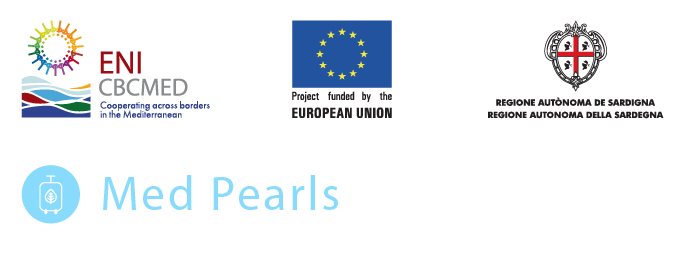
La majoria dels models turístics a l’àrea Mediterrània es basen en el turisme de masses i segueixen una visió fragmentada de la regió com una suma de diferents mercats. MEDPEARLS aspira a promoure la Mediterrània com a destinació integral gràcies a la creació de 26 productes locals de “slow tourism”, experiències turístiques similars de la mateixa qualitat en 13 regions, i convidant a les persones viatgeres a descobrir-los de forma sostenible i responsable, amb un contacte directe amb les comunitats locals.
The Mediterranean as an innovative, integral and unique destination for Slow Tourism initiatives
Finançat pel programa ENI CBC MED – programa de cooperació territorial al Mediterrani
| Anys d’implementació | 2019 – 2023 |
| Pressupost total | 3,000,000€ |
| Lloc web | https://www.enicbcmed.eu/projects/med-pearls |
| Suport ofert per B.Link | Formulació, Gestió de projecte |
Tecniospring INDUSTRY
Competitivitat empresarial

Tecniospring INDUSTRY és un programa de beques dirigits a persones investigadores experimentades, oferint-los oportunitats professionals d’alta qualitat a Catalunya gràcies a dos règims de mobilitat (entrada / sortida i tornada), ambdós de 2 anys, per desenvolupar projectes de recerca aplicada centrats en la transferència tecnològica en àmbits variats (salut, sistemes industrials, energia, agroalimentació, mobilitat, etc.).
ACCIÓ programme to foster mobility of researchers with a focus in applied research and technology transfer
Finançat pel programa Marie Skłodowska-Curie Actions (Horizon 2020) – programa per a l’educació i la formació post-doctorat
| Anys d’implementació | 2019 – 2024 |
| Pressupost total | 10.195.200 € |
| Lloc web | https://www.enicbcmed.eu/projects/med-pearls |
| Suport ofert per B.Link | Consultoria |
KIDS
Competitivitat empresarial
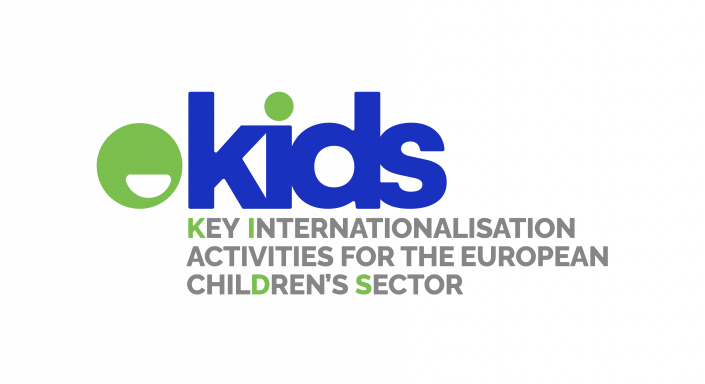
KIDS busca fomentar la internacionalització de la indústria infantil de la Unió Europea a través de la creació d’un clúster europeu que permetrà descobrir i explotar les oportunitats de negoci internacionals més prometedores per als mercats infantil i familiar.
Key Internationalisation activities for the European chilDren’s Sector
Finançat pel programa COSME(Cluster Go International) – programa europeu per a la internacionalització de les pime
| Anys d’implementació | 2021 – 2024 |
| Pressupost total | 610,064€ |
| Lloc web | https://www.kids-cluster.com/kids-european-project-consortium-and-21-companies-from-spain-denmark-and-france-travelled-to-paris-to-explore-and-expand-their-knowledge-retail-internationalization-sustainability-digitalizatio/ |
| Suport ofert per B.Link | Formulació, Gestió de projecte |
MPA-ENGAGE
Biodiversitat, medi ambient
i canvi climàtic
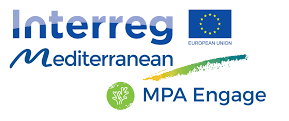
El canvi climàtic està afectant dràsticament el Mar Mediterrani. Les àrees marines protegides (AMP), malgrat ser una solució basada en la naturalesa per a la mitigació i l’adaptació al canvi climàtic, són les primeres a patir-ne els efectes. Gràcies a un enfocament participatiu, MPA-ENGAGE té com a objectiu ajudar a les AMP a dotar-se d’eines i metodologies per vigilar els efectes del canvi climàtic i adoptar plans d’adaptació.
MPA Engage: Engaging Mediterranean key actors in Ecosystem Approach to manage Marine Protected Areas to face Climate change
Finançat pel programa Interreg MED – programa de cooperació territorial al Mediterrani europeu
| Anys d’implementació | 2019 – 2022 |
| Pressupost total | 3.049.783 € |
| Lloc web | https://mpa-engage.interreg-med.eu/ |
| Suport ofert per B.Link | Formulació, Gestió de projecte |
MED4WASTE
Biodiversitat, medi ambient
i canvi climàtic
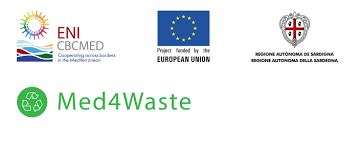
Els models actuals de producció i consum tenen un impacte preocupant a la Mediterrània. MED4WASTE pretén facilitar uns nous models de governança per a una política de gestió de residus urbans integrada i eficient gràcies a activitats de desenvolupament de capacitats, de planificació i de presa de decisions dirigides a entitats públiques i privades de tota la regió.
Mediterranean Dialogue for Waste Management Governance
Finançat pel programa ENI CBC MED – programa de cooperació territorial al Mediterrani
| Anys d’implementació | 2021 – 2023 |
| Pressupost total | 1.100.000 € |
| Lloc web | https://www.enicbcmed.eu/projects/med4waste |
| Suport ofert per B.Link | Formulació |
CONNECT
Mobilitat i cohesió territorial

L’Espai Català Transfronterer pateix la falta d’oferta transfronterera de transport col·lectiu. CONNECT té com a objectiu desenvolupar la mobilitat d’aquesta zona gràcies a la creació d’una xarxa harmonitzada de línies d’autobusos, sense tall de servei ni limitacions degudes a la frontera i adaptades als seus usuaris.
Promoting the mobility of inhabitants of the Transfrontier Catalan Space
Finançat pel programa Interreg POCTEFA – programa de cooperació transfronterera Espanya-França-Andorra
| Anys d’implementació | 2018 – 2022 |
| Pressupost total | 1.693.106 € |
| Lloc web | https://capitefa.poctefa.eu/detalle-de-proyecto/?IdProyecto=b20b725e-0487-4218-900c-cfaab3bc8550 |
| Suport ofert per B.Link | Formulació, Gestió de projecte |
PANORAMED
Mobilitat i cohesió territorial
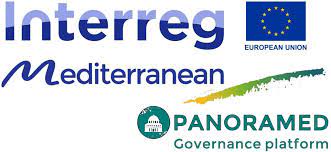
Els reptes en innovació, energia i medi ambient a la Mediterrània requereixen una governança transnacional. PANORAMED ofereix una plataforma per a autoritats públiques nacionals i regionals on establir un diàleg permanent entre elles i les parts interessades en el terreny per a l’elaboració de polítiques, una presa de decisions harmonitzada i una estratègia compartida a nivell mediterrani.
MED Governance Platform
Finançat pel programa Interreg MED – programa de cooperació territorial al Mediterrani europeu
| Anys d’implementació | 2017 – 2022 |
| Pressupost total | 9.000.000 € |
| Lloc web | https://governance.interreg-med.eu/ |
| Suport ofert per B.Link | Gestió de projecte |
SIRCLES
Sector Social
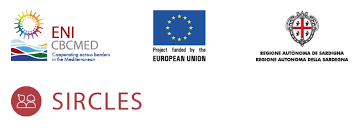
La Mediterrània té una proporció alta d’atur juvenil, en particular de les dones i dels anomenats ‘NINIs (ni estudis ni treball). SIRCLES buscar crear unes noves oportunitats per a aquests col·lectius vulnerables gràcies la incorporació del model d’economia circular al sector dels bio-residus. Se centrarà principalment en el desenvolupament de capacitat orientades a l’emprenedoria i als processos de separació, recollida i compostatge de residus.
Supporting Circular Economy Opportunities for Employment and Social Inclusion
Finançat pel programa ENI CBC MED – programa de cooperació territorial al Mediterrani
| Anys d’implementació | 2021 – 2023 |
| Pressupost total | 3.800.000 € |
| Lloc web | https://www.enicbcmed.eu/projects/sircles |
| Suport ofert per B.Link | Formulació, Gestió de projecte |
WeSTEMEU
Sector Social

A Europa, el nombre de dones és desproporcionadament inferior als dels homes en el sector de les STEM (ciència, tecnologia, enginyeria, matemàtiques). WeSTEMEU aborda aquesta qüestió i treballa a nivell interregional per millorar els instruments polítics que fomenten i faciliten l’ocupació de les dones en les STEM per un mercat laboral més eficient i inclusiu.
Women for Science, Technology, Engineering, and Mathematics in Europe
Finançat pel programa Interreg Europe – programa de cooperació interregional a Europa
| Anys d’implementació | 2023 – 2027 |
| Pressupost total | 1,649,692 € |
| Lloc web | https://www.interregeurope.eu/westemeu |
| Suport ofert per B.Link | Formulació, Gestió de projecte |
ALL-IN&WIN
Esport i cultura

Qualsevol persona té dret a gaudir de l’esport sense prejudicis negatius, discriminació o exclusió per raó de gènere o orientació sexual. ALL-IN&WIN busca una millor acceptació de les persones LGBTQIA+ en l’esport tant d’elit com de base i crear un clima segur i inclusiu amb èmfasi en el benestar de les persones esportistes.
ALLiance for improving LGBT+ INclusion in sports to WIN togetheR
Finançat pel projecte Eramus + – programa per a l’educació, la formació, la joventut i l’esport
| Anys d’implementació | 2022 – 2024 |
| Pressupost total | 400.000 € |
| Lloc web | |
| Suport ofert per B.Link | Formulació, Gestió de projecte |
OPPORTUNITY
Esport i cultura

OPPORTUNITY té com a objectius la promoció de la inclusió social de persones amb discapacitat intel·lectual i la igualtat d’oportunitats des de la perspectiva de gènere a través dels jocs esportius tradicionals.
Fostering social inclusion and gender equality in formal and nonformal educational contexts through applying traditional sports and games
Finançat pel projecte Eramus + – programa per a l’educació, la formació, la joventut i l’esport
| Anys d’implementació | 2021-2023 |
| Pressupost total | 382.536 € |
| Lloc web | https://erasmus-plus.ec.europa.eu/projects/search/details/622100-EPP-1-2020-1-ES-SPO-SCP |
| Suport ofert per B.Link | Formulació, Gestió de projecte |
